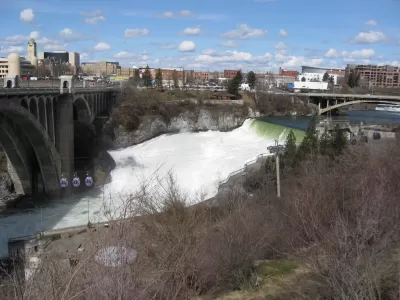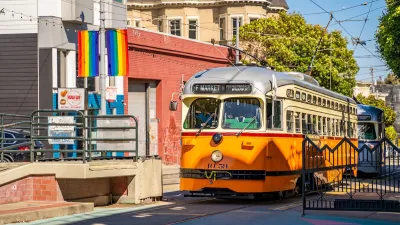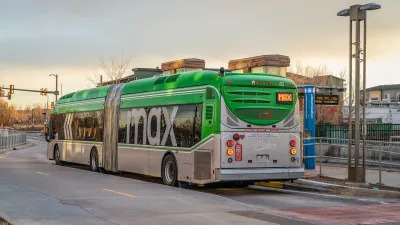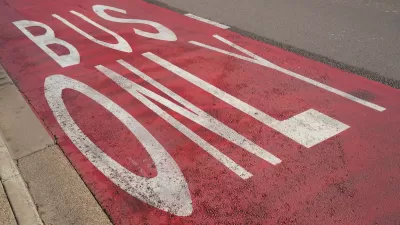Spokane, Washington may be at a crossroads as voters consider expanding the city's urban transportation system. Some say it's key to attracting young workers and building a walkable urban environment. Others see it as a waste of money.

This November, voters in Spokane, Washington will have the opportunity to vote for an increase in the sales tax to fund a raft of transportation projects including a new bus-rapid transit system. John Robert Smith of Transportation for America, writing on the Opinion Page for the Spokesman-Review, advocates for the need for better mass transit as a means for attracting and retaining young workers who might otherwise look elsewhere. Noting the downward trend of millennials driving cars, Smith writes that cities are now competing to create the urban, walkable neighborhoods that attract a wide range of jobs and workers. Smith notes:
In “Core Values,” a study my organization conducted on the movement of companies across the country relocating to downtowns, businesses reported that current and potential employees want neighborhoods with restaurants, cafes, cultural institutions, entertainment and nightlife as well as easy access by public transportation.
...
Bus rapid transit done right can bring economic benefits akin to more expensive light rail systems, but at a lower price – a great recipe for midsize cities that aren’t quite ready for rail-based transit.
In a follow-up to Smith's opinion piece, Randall O'Toole of the Cato Institute argues against the sales tax increase as a waste of funds to be used by the Spokane Transit Authority to do "projects promoted by the federal government." O'Toole also argues that the success of Portland in attracting young workers has less to do with its light rail system and more to do with its abundance of microbreweries.
FULL STORY: John Robert Smith: Will Spokane get on board or be left behind?

Alabama: Trump Terminates Settlements for Black Communities Harmed By Raw Sewage
Trump deemed the landmark civil rights agreement “illegal DEI and environmental justice policy.”

Planetizen Federal Action Tracker
A weekly monitor of how Trump’s orders and actions are impacting planners and planning in America.

The 120 Year Old Tiny Home Villages That Sheltered San Francisco’s Earthquake Refugees
More than a century ago, San Francisco mobilized to house thousands of residents displaced by the 1906 earthquake. Could their strategy offer a model for the present?

In Both Crashes and Crime, Public Transportation is Far Safer than Driving
Contrary to popular assumptions, public transportation has far lower crash and crime rates than automobile travel. For safer communities, improve and encourage transit travel.

Report: Zoning Reforms Should Complement Nashville’s Ambitious Transit Plan
Without reform, restrictive zoning codes will limit the impact of the city’s planned transit expansion and could exclude some of the residents who depend on transit the most.

Judge Orders Release of Frozen IRA, IIJA Funding
The decision is a victory for environmental groups who charged that freezing funds for critical infrastructure and disaster response programs caused “real and irreparable harm” to communities.
Urban Design for Planners 1: Software Tools
This six-course series explores essential urban design concepts using open source software and equips planners with the tools they need to participate fully in the urban design process.
Planning for Universal Design
Learn the tools for implementing Universal Design in planning regulations.
Clanton & Associates, Inc.
Jessamine County Fiscal Court
Institute for Housing and Urban Development Studies (IHS)
City of Grandview
Harvard GSD Executive Education
Toledo-Lucas County Plan Commissions
Salt Lake City
NYU Wagner Graduate School of Public Service





























